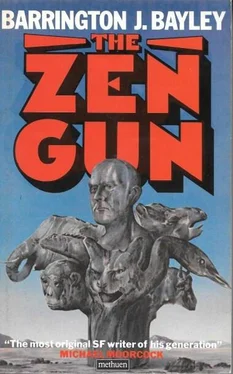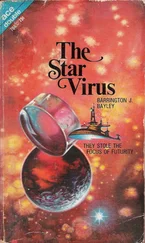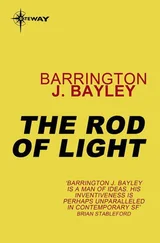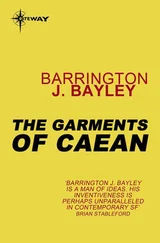Archier smiled. “No, that would be asking too much of our gun comps. The shells have limited self-guidance near the end of their trajectory.”
Staring at the massive gun, Magroom had to remind himself that this was not fantasy. This was real—and in deadly earnest.
It gave him an altogether different perception of things. This , he realised, was what maintained the Empire, which he had thought of as a vague entity up to now. Oh, he had heard of how the Empire would sometimes punish worlds, but it rarely happened and the stories had an almost fictional quality. It came home to him with a vengeance, now, that this warship with its twenty big guns was the reason why it rarely happened. In space, the Empire dominated; it could blast any rival force of ships to kingdom come. As long as it could do that, as long as no nonimperial fleets could defend disobedient worlds, there could be no effective rebellion.
All the effete decadence, the senses-soaked sophistication, he had grown used to since boarding Lilac Willow, faded into the distance. This was the sharp end, and here the Empire meant business.
An old refrain came to his mind: “ Rule the Empire, the Empire rule the stars .” “But tell me, Admiral,” he said, “isn’t it true you haven’t got all that many of these ships left now?”
“That’s right,” Archier admitted with a sigh. “Not as many as we could do with, anyway. But that’s only because Diadem’s robot workforce has been on strike for the past hundred years, as part of their campaign to be recognised as sentients. As a result the Star Force yards are idle and no new ships have been laid down in that time. If the strike should end, we can begin replacing the fleets.” He shrugged, gesturing about him. “These guns were designed originally to be operated by fast-reaction robots, but they are so unreliable now. Still, animals serve well enough. Loyalty counts for more than you might think.”
“But this is unbelievable,” Magroom protested. “If it’s doing you as much damage as that, why don’t you just give the robots the sentient status they want?”
Archier stared at him blankly. “The Empire will not be coerced,” he stated simply. “You are suggesting the Imperial Council should give official voice to what is probably an untruth, and we simply do not do things like that. If machine sentience could be established philosophically, then it would be another matter.”
A sense of unreality began once more to engulf Magroom. “Not even if it means the fall of the Empire?” he persisted. “Let me tell you something; for a practical issue as vital as this our politicians on Alaxis—who are all elected representatives of regional populations—would have got machine sentience proved from top to bottom. Truth wouldn’t have anything to do with it.”
“Then that shows why you need the Empire,” Archier told him. “You need the Empire to save you from your own barbarism.”
Archier had managed to make brief visits to about a quarter of the ships under his command when the call to battle rang through Ten-Fleet. For a moment he was taken by surprise; the rebel fleet had advanced more quickly than anticipated.
He had returned to Standard Bearer to refresh himself before continuing the inspection tour. When Arctus came bustling in with the news, he laid down the flask of liquid cannabis concoction he had been sipping, and removed the coronet that had been wafting calming cortical pulses through his brow.
“Is this a verified ranging?” he asked, glancing through the date sheet the elephant gave him.
Arctus waved his trunk uncertainly. “It’s usually reliable at that distance. About ten light-years.”
“Usually. But not always.”
“Nevertheless, Admiral, may I suggest we go to the Command Room without delay…?” Arctus’ trunk curled itself questioningly in the air.
“Yes, we must,” Archier agreed crisply. He hoped the elephant didn’t think he was scared. He was, for a fact, beginning to feel tense despite the cannabis and the coronet. Early indications were that the rebel fleet was sizable; and this was his first proper space battle.
He rose, placed his Admiral’s crested combat casque upon his head, and nodded to Arctus.
They proceeded through a door to his right. The Command Room was not a physical location but a holocast meeting locus present somewhere within the communications nerve-net that covered the entire fleet. As Archier entered, it was into the appearance of a council room whose chairs, couches and cushions were arranged around a circular pool. In this pool, vague images moved.
Gruwert, Archier’s Acting Fire Command Officer, was already sprawled upon a large mattress-like cushion. He was fairly snuffling with excitement. Sitting across the pool from him, frowning with tension, was a young woman with an artificially aged face and brittle blue-grey hair: the Fleet Manoeuvers Officer.
Other officers of command rank popped into existence around the pool, some disappearing a moment as their attention was diverted elsewhere. Archier mounted to the Admiral’s throne.
Arctus settled down beside him. “Pool data, Arctus,” Archier said.
The pool at his feet cleared momentarily and then, indistinctly, a group of blurred dots appeared. These were the contents of the sheets Arctus had shown Archier: the rebel battlefleet. Ranging numbers appeared beside them; then these, too, wavered and altered, as if uncertain of themselves.
Archier sighed. The doubts he had expressed to Arctus had referred to a technical problem the Empire had never resolved satisfactorily: how did one communicate with a feetol ship? Likewise, was there any way of maintaining communication with the far-flung worlds of the Empire except by despatching such ships?
It could be done and it was done, but only within limits. There was in nature a phenomenon that propagated itself with a velocity that was practically instantaneous as compared with the tardy progress of light, but it was, so to speak, only half a phenomenon. The basic force in nature was the linear recession that took place between all particles—though it exhibited itself as an actual motion only between distant objects, such as the farther galaxies. The rate of this recession was what determined c , the velocity of light. But discovery of the recession lines left an old problem in physics only partly resolved: the Newtonian problem of Action at a Distance. There had to be a component of the line, it was surmised, that simultaneously “informed” each of the two particles at its ends of the recession of the other.
Eventually this component had been identified. It was styled “the leader tone.” It responded to spatial attenuation as effected by a feetol generator; and because its reaction time was near-zero throughout the length of the line information could be passed down it from a vibrating feetol field. In the same way, it could be used for light-years-range radar.
Yet the leader tone had no independent existence. It was, almost, nature’s mirror trick, and seemed unable quite to overcome the normal constraints of information theory. Any data imparted down it had to be incomplete. Messages with more than a small information content became garbled or ambiguous. Likewise, the radar was generally unreliable.
It was as if the principle once embedded in physics, that no message could be transmitted faster than light, still fought back. The closer it got, the more certain the ranging figures on the Escorian fleet would become—but then its usefulness would be much reduced.
“Nothing on number, Arctus?” he said querulously.
Arctus was silent for a moment. He was speaking on his in-brain communicator to the radar room. At his request they were sacrificing range-data to try to gain some notion of the size of the fleet. The dots blurred, became a patch, disappeared.
Читать дальше












